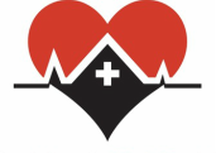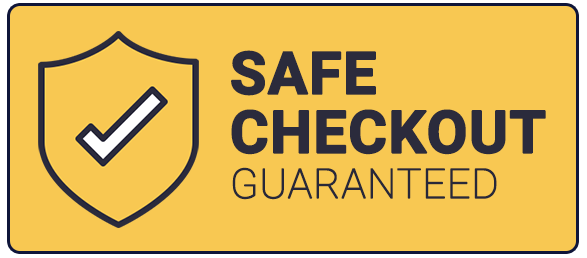What Are The H's and T's?Advanced cardiac life support (ACLs/ALS) classes prepare a healthcare provider for events relating to sudden cardiac arrest including basic life support (BLS) and airway management skills. However, once resuscitation events have proven successful it is also important to identify any reversible causes of the abnormal arrhythmia and cardiac arrest. This is the point where an in-depth understanding of the H's and T's is critical. Summarizing the H's and T'sThe H's and T's are a mnemonic device to help you remember the different contributing factors to sudden cardiac arrest due to pulseless electrical activity (PEA), asystole, ventricular tachycardia (Vtach), or ventricular fibrillation (Vfib). An increased understanding of these factors can help you find underlying causes due to any of these events. The H's1. Hypovolemia: Hypovolemia occurs when the body loses a large amount of blood or fluid due to severe blood loss, vomiting or diarrhea, dehydration, and excessive sweating. 2. Hypoxia: Hypoxia is a condition exhibited by decreased oxygen levels throughout the body or in a specific area. Hypoxia may be caused by various pre-existing medical conditions, drowning, trauma, or a brain or spinal cord injury. 3. Hydrogen Ion (Acidosis): Acidosis occurs when there is a buildup of hydrogen ions that impair the circulatory system and reduce oxygen into the lungs. Both metabolic and respiratory acidosis may lead to cardiac arrest. 4. Hyper-/Hypokalemia: These are metabolic disorders which involve abnormal potassium levels which can lead to cardiac arrest. Hyperkalemia occurs when potassium levels get too high, while hypokalemia is characterized by low potassium. 5. Hypothermia: Hypothermia occurs when a person’s body temperature drops below 86°F. Although it is not a common cause of cardiac arrest, it should be considered in some circumstances, especially drowning. The T's1. Tension Pneumothorax: This condition occurs when air becomes trapped in the pleural space. The buildup of tension can lead to cardiovascular collapse, which is life-threatening. It can occur due to respiratory diseases, trauma, or other factors 2. Tamponade: Cardiac tamponade occurs when fluid accumulates in the pericardium, which prohibits the heart from pumping blood normally. It is often caused by trauma or inflammation of the pericardium. 3. Toxins: This condition can be caused by an accidental overdose of any number of medications which can lead to cardiac arrest. Some of the most common include tricyclic antidepressants, beta-blockers, calcium channel blockers, benzodiazepines, opiates, and barbiturates. 4. Thrombosis (Pulmonary): Pulmonary thrombosis occurs when there is a blockage in the primary lung artery. It often occurs due to deep venous thrombosis (DVT). 5. Thrombosis (Coronary): Coronary thrombosis is in the majority of cases caused by disruption or fissuring of an atherosclerotic plaque. Application of Knowledge of H's and T'sUnderstanding the H's and T's of cardiac arrest and reversible causes is a vital part of any ACLS/ALS training. By knowing the aforementioned reversible causes allows the healthcare provider to respond quickly to the underlying problem and possibly prevent additional complications from occurring. The H and T mnemonic presented will allow you to quickly evaluate possible causes, while also ensuring you can respond to any additional patient needs and concerns. Would you like to take your knowledge and your patient care to the next level with ACLS/ALS certification with us here at Help-A-Heart CPR. With classes online, in-person, and on-site, you can find a course that fits your busy schedule. Contact us today to learn more about our class options or check out our current class schedule today.
Comments
|
AuthorDr. Tracy A. Jones is the CEO of Help-A-Heart CPR, LLC and an American Heart Association, ASHI, and American Red Cross Master Program Trainer, Instructor, & AHA Faculty Member located in San Antonio, Texas. Archives
June 2024
Categories |
Help-A-Heart CPR, LLC | 1747 Citadell Plaza Suite 101 | San Antonio, Texas 78209 | (210) 380-5344 | [email protected]
Copyright © Help-A-Heart CPR, LLC 2024
100% Certification Acceptance
We promise your employer, school, or agency will accept the certification card we issue to you. If there is a question of acceptance or validity, simply send us an email at [email protected] with full details. We will reach out to the individual/entity and provide accreditation information. If still there’s a question, we will provide you with a full refund of your class fee. It’s that simple.
We promise your employer, school, or agency will accept the certification card we issue to you. If there is a question of acceptance or validity, simply send us an email at [email protected] with full details. We will reach out to the individual/entity and provide accreditation information. If still there’s a question, we will provide you with a full refund of your class fee. It’s that simple.
|
Communities Served
ALABAMA: Birmingham
ARKANSAS: Fayetteville, Hot Springs, Jonesboro, Little Rock NEW MEXICO: Albuquerque TENNESSEE: Knoxville TEXAS: Amarillo, Arlington, Austin, Bandera, Bastrop, Boerne, Brownsville, Comfort, Converse, Corpus Christi, Dallas/Ft. Worth, Del Rio, Dripping Springs, El Paso, Floresville, Fredericksburg, Georgetown, Harlingen, Houston, Junction, Katy, Kerrville, Kingsville, Kingwood, Laredo, Lubbock, Lufkin, McAllen, Midland, New Braunfels, Odessa, Pleasanton, Round Rock, San Angelo, San Marcos, Schertz, Seguin, Taylor, Temple, Texarkana, Tyler, Universal City, Victoria, Waco, The Woodlands |
Why Choose Help-A-Heart CPR?
1. Flexible Scheduling
2. On and Off Location Training Available 3. Casual, Fun Atmosphere 4. Best Price Guarantee 5. All Instructors are AHA and/or ARC certified 6. 5 Star Google Reviews 7. Blended Learning (Online & Skills Check) Available 8. Meets OSHA & College CPR Requirements 9. Get Certified Within 3-4 Hours 10.Certification Is Good For Two Years 11. Official AHA/ARC/ASHI Training Site 12. High Quality Safety Training! |








